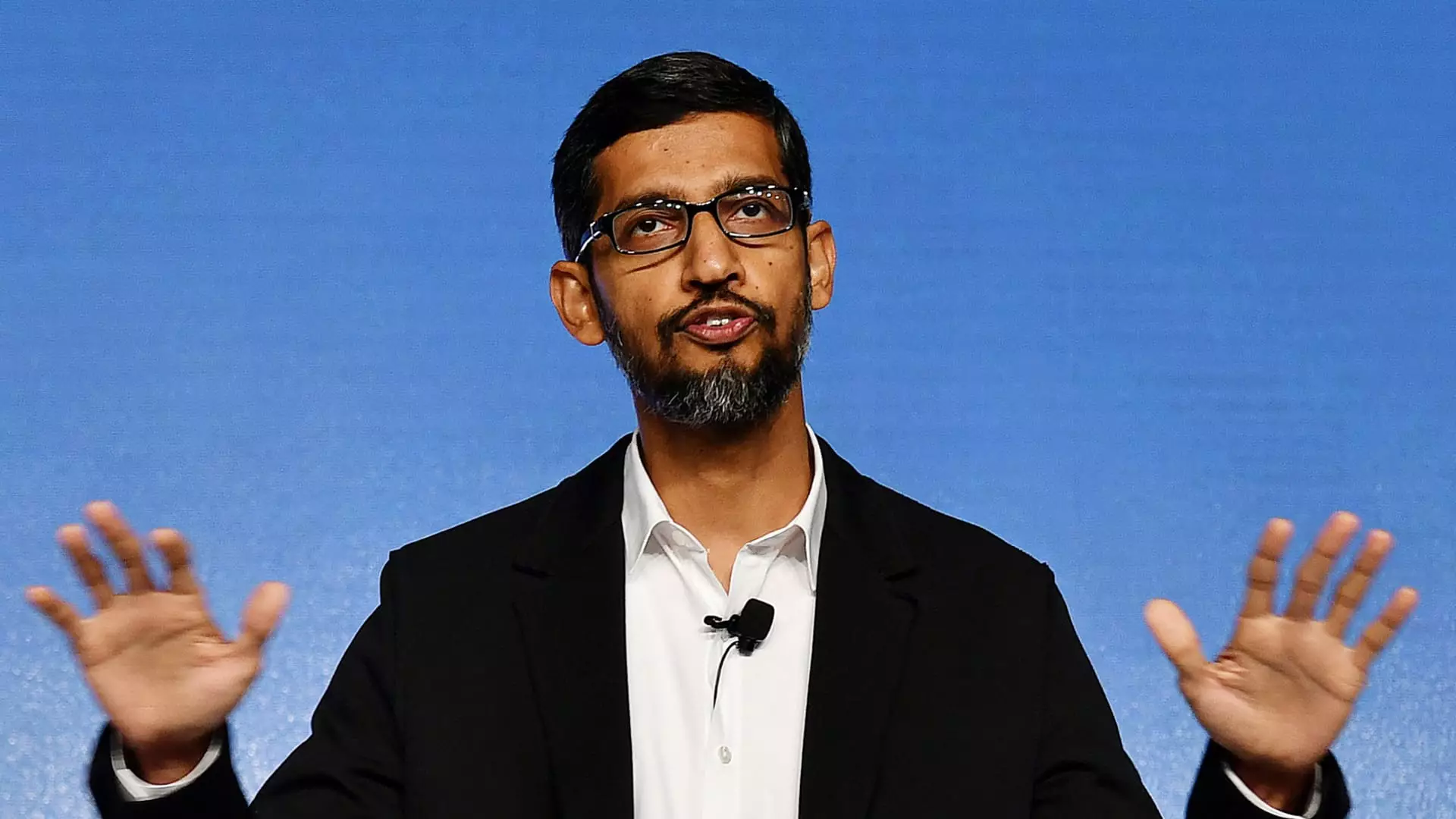The intersecting realms of technology and politics often create a complicated landscape, especially within major corporations like Google. As the lead-up to the U.S. elections unfolds, it becomes increasingly evident that Google is enforcing stringent measures to curtail political discourse among its employees. The company’s internal discussions are being subjected to scrutiny, raising critical questions about employee expression and the corporate culture that governs these exchanges.
Recent reports reveal that Google executives have cautioned employees against discussing political matters on the platform known as Memegen. This internal forum, once a space for light-hearted humor and sharing of experiences, has become the frontline in a battle over personal expression and corporate policy. Google CEO Sundar Pichai emphasized the company’s responsibility to maintain high-quality information channels, underpinning the company’s image as a neutral haven for diverse beliefs. Yet, this call for neutrality contrasts sharply with growing discontent among employees who feel their voices are being stifled.
Since the introduction of a contentious policy in 2019, which prohibits statements that “insult, demean, or humiliate,” Google has been on a path to redefine employee interactions. The significant cultural shift, aimed at fostering a more inclusive environment, has met resistance. Many employees argue that the policies are overly vague and suppress necessary dialogue on critical issues related to workplace culture and broader societal challenges.
The current predicament illustrates a paradox inherent in corporate America today: the struggle to be a trusted source of information while simultaneously regulating the speech of employees. Pichai’s assertion that the company should be a “trusted source” might mean diminishing the personal insight of those who work within its walls. The reminders to avoid political expression may suit the company’s objective of providing apolitical services, but they risk alienating employees who wish to engage in meaningful dialogue.
In 2020, Google expanded its content moderation practices, further restricting internal discussions around politically charged topics. This has led to instances where memes—often humorous observations on the political climate—have been flagged, raising concerns over the chilling effect these policies might have on open conversation. Rather than fostering a healthy exchange of ideas, such measures could usher in an environment where employees feel disincentivized to share their perspectives.
With the implementation of advanced artificial intelligence, Google aims to detect and manage conversations that breach their guidelines more effectively. The explicit restriction on political commentary, including any reference to geopolitical issues, highlights how deeply the company seeks to combat internal dissent. Employees who dare to voice their opinions face potential bans from Memegen, a consequence that seems disproportionate when the platform is primarily used for informal communication.
Such a method of enforcing guidelines can create divisions among employees. Those who may feel compelled to express their thoughts may choose to self-censor, leading to a less vibrant workplace environment. The removal of ostensibly benign memes or comments can easily lead to frustration and resentment.
Google’s anxiety over internal conversation isn’t merely a matter of workplace culture; legal implications loom large as well. Following a settlement with the U.S. National Labor Board, the company is bound to recognize employee rights, including discussing workplace conditions. This creates a tenuous balance between regulatory compliance and the enforcement of stricter internal conduct policies. Employees remain cautious, aware that their rights could be tested as they navigate the complexities of expressing political opinions in a corporate space.
In this context, the stakes are high not only for Google’s internal coherence but also for its public image as a modern employer. The ongoing debate within the company underscores a broader societal challenge: how do organizations cultivate a culture of inclusion while preserving a space for respectful dialogue?
As Google continues to navigate its internal policies regarding political discourse, the crux lies in balancing corporate objectives with the fundamental need for open expression. The effectiveness of Google’s communication strategies will depend on their willingness to adapt, listen to employee concerns, and reexamine their approach to moderating internal dialogue.
Google’s current approach to moderating political discourse within its workforce not only raises questions about freedom of speech but also reflects the larger challenges faced by technology companies in an increasingly polarized environment. As they look ahead, finding the balance between governance, corporate responsibility, and freedom of expression will be instrumental in shaping the culture and future of the organization. In the realm of tech giants, this balancing act may well define the new frontier where innovation meets ideology.


Leave a Reply